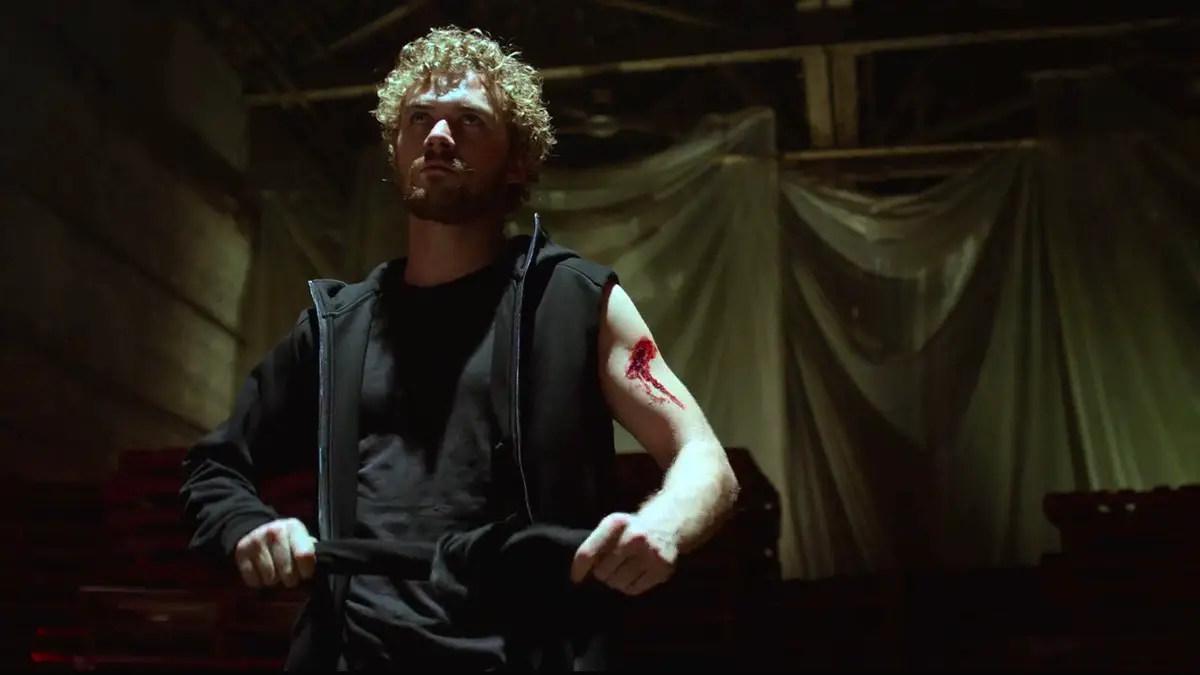To say that Netflix’s foray into the Marvel Universe has been full of surprises is a bit of an understatement, at best. From its humble beginnings with “Daredevil,” a series that many were initially wary of, the streaming service has managed to shatter expectations for its comic-book adaptations on a level that’s only comparable to the paradigm-shifting success that the Marvel’s Cinematic Universe has seen.
There has been such a dramatic shift in expectations for productions based off of comic books, in fact, that most moviegoers could be forgiven for completely forgetting (or attempting to forget) the many decades in which any live-action depictions of comic book heroes, whether they were on the big screen or right on the home television, were entirely predictable in their failings.
Now, with movies such as “The Avengers” and series like “Daredevil” or “Jessica Jones” setting consumer expectations at an all-time high, the stigmas of yesteryear have all but vanished, and with each addition to this growing repertoire, it seemed, for a time at least, that the juggernaut of Marvel teamed with Netflix simply could not fail, no matter how obscure the source material. Far from being simple cash grabs, these productions felt more like labors of love to existing fans, and an embrace of open arms offered to new fans.
But then, “Iron Fist” happened.
Some may argue that the dramatic decline in quality began elsewhere with Netflix’s endeavors, but regardless of the variable that is personal opinion, there are specific qualities in “Iron Fist” that were missing when compared with the other, more successful entries in the lineup. Taken as it is, as a standalone show with no prior expectations set by the preceding works in the Marvel Universe, the show could, in fact, easily be seen as an enjoyable action series. Actually, it is very comparable to the CW’s highly acclaimed “Arrow,” in both its strengths and shortcomings.
The fan reaction to “Iron Fist,” however, despite the similarities in quality, was nowhere near as positive for the former as it was for the latter, and to understand why means understanding the missing qualities, the dramatic shift in tone and production values, that made former fans scoff at “Iron Fist.”
First and foremost, “Iron Fist” represents a substantial step backward in terms of emotional weight, and maturity brought to a medium that was formerly seen as being reserved for children, and those clinging desperately to their childhood heroes. “Daredevil,” being Netflix’s first foray into the realm of superheroes, was forced to play things at least somewhat safe when it came to the basic setup. A group of mobsters and thugs run the streets of New York, and Daredevil needs to stop them. Simple enough, right?
But the devil is in the details, with compelling characters highlighting what using real people for animated roles can bring to the table, as each actor brought a whole new level of intricacy to the classic setup.
Fisk, also known as Kingpin, is perhaps the best example of this, as he portrayed the complex, tortured soul of a villain who genuinely believes that he is doing everything in his power to help the citizens of Hell’s Kitchen, just as the protagonist does. The lines between morals, between the classic visions of good and evil were blurred, and that combined with the gritty, realistic take on the action provided a growing (literally, from childhood) fanbase with something far more than they could have bargained for.
“Jessica Jones” took things a step further, as riding off the previous successes of “Daredevil” allowed the studio much more freedom to venture into obscure territory, and boy, did it pay off. This series managed to not only take a character that almost nobody outside of dedicated comic book fans would recognize and turn her into a household name overnight, but it also managed to tackle real, deeply mature issues such as psychological scarring, Stockholm Syndrome, addiction and much more. “Luke Cage” represented another step in that same direction, tackling the incredibly relevant and sensitive issues of discrimination, prejudice and several other societal issues that couldn’t have arrived at a more prudent time in our nation’s history.
These series delivered so much, from entertainment to deep, societal insight, and all delivered in the convenient form of easily binge-able streaming content.
But then, “Iron Fist” happened.
The series, as mentioned previously, functions just fine by the standards of any other studio, or by any other franchise, but when taken as a whole with the rest of Netflix’s stellar lineup, it should give viewers pause when it comes to their excitement for future releases.
The setup is not only very simple, but it is something that audiences have seen before. Please, stop me if any of this sounds familiar. Rich kid loses one or more of his parents to some tragedy, then undergoes some form of training with supernatural elements in some far-off land before returning with a vow to clean up the streets.
Recognize the similarities yet? Most fans of “Arrow” or even the most basic variation of “Batman” will see them straight away, and may even call foul. The fact that the setup is derivative isn’t enough to make this a bad show by any means, but unfortunately the series also lacks any of the character that made these other iterations, along with Netflix’s previous works, so much more effective. Complexities are found only on the surface, and the main protagonist retains an air of arrogance and privilege that lacks even the faintest of redeeming qualities found in the likes of Bruce Wayne. Having a lackluster plot that fails to go anywhere new is one thing, but it is another thing entirely to have unlikeable characters go nowhere with their respective arcs, or to fail to bring anything new to the table with the series overall.
The failings of “Iron Fist” aside, what does this mean for the future of Netflix’s Marvel undertakings? On the one hand, the fact that their most recent work was played as such an incredibly “safe” and “by-the-books” approach, the same approach that garnered the initial stigma for comic book shows in the first place, is worrisome. This could indeed point toward a sort of complacency on the end of the producers, or perhaps toward increased pressure from higher-ups to maximize broad appeal by making things as palatable as possible for an audience that they believe prefers mindless action.
On the other hand, the track record of their previous successes may pay great dividends, considering that their plans for their latest series includes Jessica Jones, Daredevil, Luke Cage and Iron Fist in a massive crossover undertaking titled “Marvel Defenders.” Iron Fist may not have brought much to the table in his own story, but it is hard to believe that even if the artistic integrity of the studio were somehow compromised, the rest of the cast would have their characters completely gutted as a result. There is simply too much solid background, too much positive material to work with here for this series to stand much of a chance at failing, at least completely so. Could it disappoint? Certainly. Could their next standalone series prove to be just as emotionally flaccid as “Iron Fist”? Sure, but as far as the much-anticipated release of “Marvel Defenders” is concerned, the odds are definitely in favor of massive success on all accounts.
All I’m saying is that perhaps it’s a bit too early to lose faith in the company that has brought us some of the most exciting televised moments in recent history. This is coming from a massive fan who felt the equally massive disappointment that came with the release of “Iron Fist,” and someone who has shared these same fears for the future. There is still hope, and in the wise words of a certain caped crusader’s two-faced enemy, “The night is darkest just before the dawn.”

















